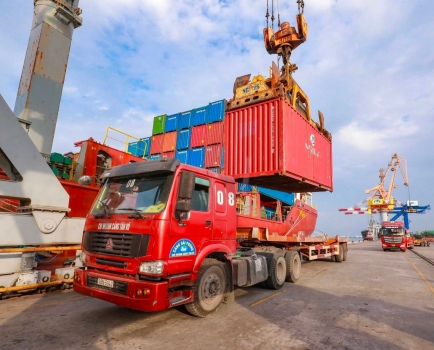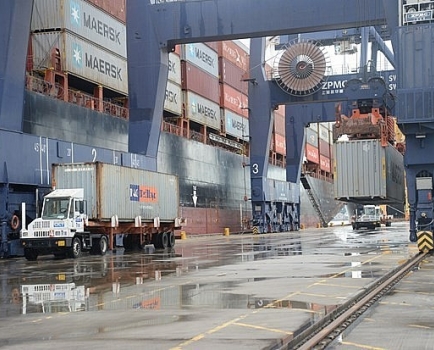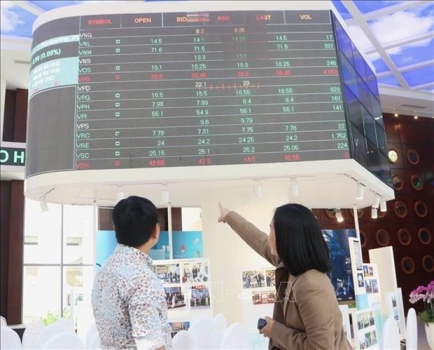Will tighter Fed policy produce adverse effects in overseas markets?
Sat, 29 Jan 2022 09:36:00 | Print | Email Share:
As the Fed readies itself to lift rates, probably in March, so the world holds its breath to see if tighter Fed policy produces adverse spillover effects in overseas markets, especially emerging markets.

Fed has created tools such as central bank swaps and repos that allow foreign central banks access to dollars and this can be crucial if a dollar shortage problem starts to arise.
Earlier this week, the IMF reflected these concerns, arguing that fast Fed hikes could crimp the economic recovery in Asia. However, Mr. Steve Barrow, Head of Standard Bank G10 Strategy said that this is a bit mixed. “For, on one side we do think that the Fed is dramatically behind the curve and will have to lift rates more than the market expects but, on the more optimistic side, we think the Fed’s threat to international markets is not what it was”, Mr. Steve Barrow stressed.
Mr. Randal Quarles, the former Fed Governor said that the Fed would need to push the funds rate above inflation because positive real rates are normally required to stamp out inflation. Mr. Steve Barrow agrees with this view. But with the market priced for the Fed to push the fed funds rate up to no more than 1.75% by the end of 2024, it seems to him that pricing is far short of where the Fed needs to go as he doubts inflation will fall below this level.
Could more aggressive Fed policy, or even just that priced into the curve right now, have big and adverse spillover effects for other economies and markets? Investors certainly seem worried, but Mr. Steve Barrow is more sanguine for a number of reasons. First up; positioning. Although there does seem some movement of investors away from US equities towards countries or regions with cheaper valuations, like Europe, it still appears that US markets are most at risk if investors decide to turn tail and sell stocks on mass. Perhaps US equity underperformance so far this year says as much.
Furthermore, and particularly when it comes to EM assets, inflows have been quite meagre for some time and have tailed off quite badly recently. Hence, if rapid position adjustment occurs, EM assets might not be the first in the firing line. Another factor is that many developed and EM nations have started to lift rates. It is not as if most are some distance behind the Fed, as was the case with the last Fed tightening cycle.
Of course, this rate cushion may not offer much support if financial markets implode but if any weakening is more sedate, the fact that many central banks are a step ahead of the Fed could help. An additional factor is that the Fed has created tools such as central bank swaps and repos that allow foreign central banks access to dollars and this can be crucial if a dollar shortage problem starts to arise.
“It seems to us that this factor was quite important in the early stages of the pandemic at the start of 2020. For while the dollar rose, its increase was temporary and data such as basis swaps showed that no material dollar shortage developed. This is important because if corporate and institutional firms that are short of the greenback feel that they can always access dollars, and not at an extortionate price, they will have more confidence in holding onto these short positions even if financial market strains develop in equities or other risk assets. Another factor we should mention is the strength of commodity prices which bolsters many developed and, particularly, emerging economies. Prices here look set to stay elevated through the tightening cycle and hence may also act as a cushion against any tensions created by what happens in the US. And finally, on top of all these we should add in some of the longer-term financing trends, such as reduced use of the dollar by a number of countries (Russia most notably), the challenge from digital currencies and China’s rise to what now almost seems a ‘safe’ asset position given that the renminbi continues to appreciate”, Mr. Steve Barrow said.
In the end, Mr. Steve Barrow is not arguing that external asset markets, particularly in EM, are immune to US developments such as tighter Fed policy. But what we are suggesting is that they are not anywhere near as vulnerable as they might have been in the past and that’s despite the fact that the Fed is facing a much bigger inflation threat than before.
By: Business Forum Magazine
Source: https://en.diendandoanhnghiep.vn/will-tighter-fed-policy-produce-adverse-effects-in-overseas-markets-n33346.html
---------------------------------------------
Same category News :













